

Activity Report
GGP Edge Program 2024 Selection Committee Held to Foster a Community of Social Value Creation--Actual, JGC Parallel Technologies, and Yamaha Motor Selected
On November 28, 2024, the GGP* Edge Program (hereinafter referred to as "Edge Program"), a pioneering initiative in the field of social entrepreneurship , held its final selection and networking event under the sponsorship of GGP and co-sponsored by the Japan Research Institute.
- * GREEN×GLOBE Partners, a community operated by SMBC Group, dedicated to addressing environmental and social issues.
The Edge Program's winners for fiscal 2024 were Actual (Kyoto), which archives artworks and exhibitions; JGC Parallel Technologies (Yokohama), which aims to create inclusive work environments regardless of disabilities; and Yamaha Motor (Shizuoka), which focuses on revitalizing ancient roads and regional areas through mountain bike tourism .
The Edge Program, now in its second year, supports the creation of social value through core business activities . After presentations by seven finalists and a Q&A session with the selection committee, the three companies were chosen based on criteria of innovation, foresight, and specificity.
The three selection committee members, each a respected figure in their respective fields, brought their wealth of knowledge and experience to the selection process, ensuring the program's credibility and integrity.
The three companies, aiming to develop into businesses that create higher social value, will be provided with mentoring by Professor Jin-ichiro Yamada, an expert in green entrepreneurship, and support from the Japan Research Institute to refine their logic models.
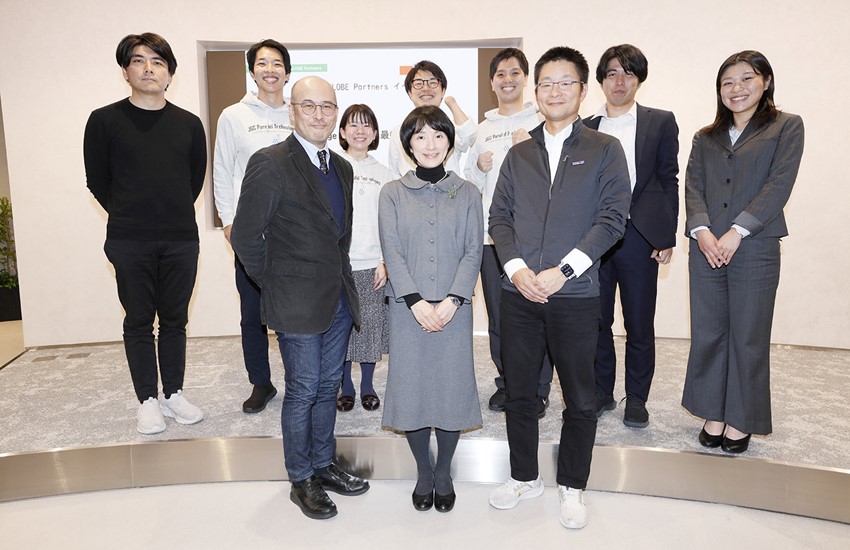
The three companies selected for the GGP Edge Program 2024 and three selection committee members.
The front row from left is Jin-ichiro Yamada, Megumu Murakami, and Masaki Takao.
Back row, from left: Yuki Tsuji of Actual;
Takehiro Seki, Ayako Senoo, Kenta Awatari, and Hiroshi Nagao of JGC Parallel Technologies;
Shohei Ishida and Honoka Maeda of Yamaha Motor Co.
Making the world's cultural heritage sustainable--Actual "WHERENESS“
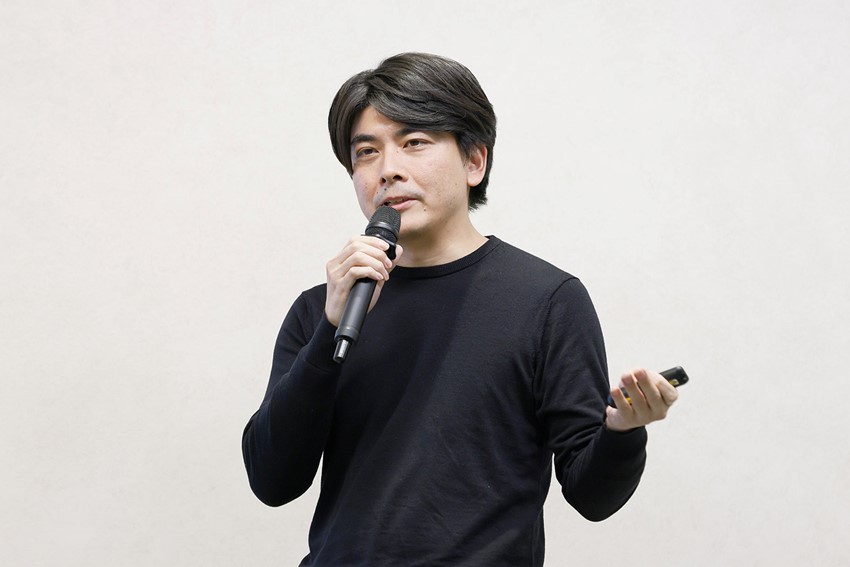
Yuki Tsuji, CEO of Actual Inc.
Actual is a company that builds “WHERENESS”, a platform that archives exhibitions and artworks from around the world using 360° video technology.
CEO Yuki Tsuji highlights several contemporary challenges that facing art: exhibitions, which cost tens of millions of yen to organize, are often temporary; there is an increase in artworks that cannot be preserved physically; 99% of art pieces remain in storage; and there is a risk of destruction due to conflicts. Mr. Tsuji envisions that by archiving the world's cultural heritage, art can be appreciated virtually across time and space, contributing to future education and research.
A society where everyone can work equally--JGC Parallel Technologies, Inc.
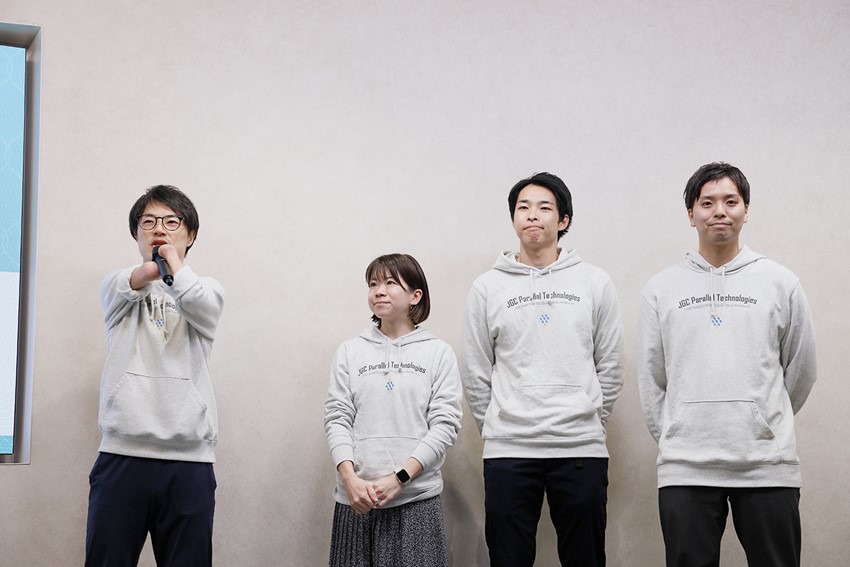
From left: Kenta Awatari, CEO of JGC Parallel Technologies; Ayako Senoo, Administrative Manager;
Takehiro Seki, Business Manager; and Hiroshi Nagao, Director and CTO
JGC Parallel Technologies, special subsidiary of JGC Holdings, is committed to improving the working environment for people with disabilities, with the mission of "creating a society where everyone can work equally, regardless of disabilities. "While special subsidiaries in Japan often employ at minimum wage, JGC Parallel Technologies offers 1.75 times the annual income of a typical special-purpose subsidiary. They also offer a fully remote and flexible work environment for employees.
CEO Kenta Awatari shared his motivation for founding the company, stating, "I was born with a disability and faced prejudice that I couldn't work. I didn't want to accept such a society.” In response to Takao's question about how they achieve 1.75 times the annual income of a typical special-purpose subsidiary, Awatari explained that they provide IT and DX services using advanced technology to the JGC Group.
The number of employees has grown sevenfold in the four years since its establishment.
"Challenges like difficulty in working are issues everyone faces. I believe these can be overcome by changing societal rules. I want to articulate our methods of full remote and flexible work and share them not only within our group but with society as a whole," Awatari expressed his aspirations for the future.
Mountain Bikes Revitalize Ancient Roads and Rural Areas--Yamaha Motor's "Mountain Ride Hub"
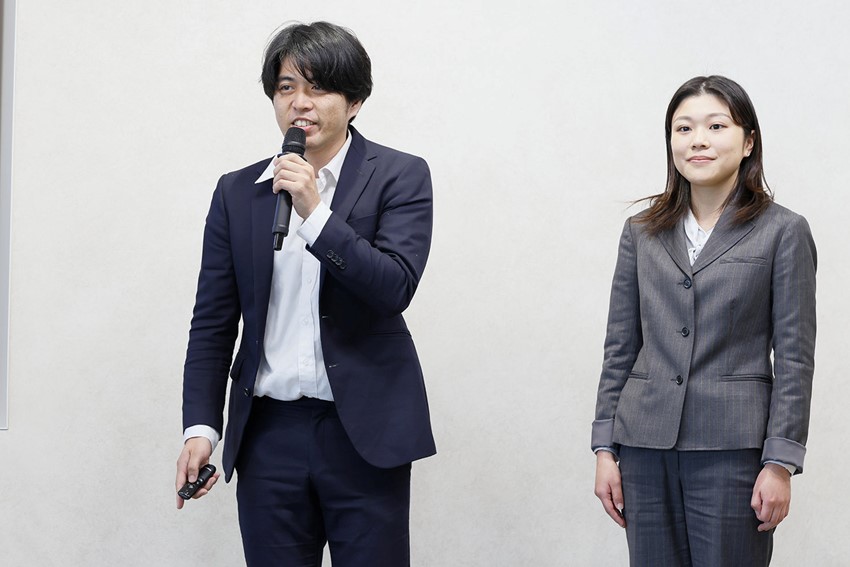
Shohei Ishida (left) and Honoka Maeda (right) of the Business Planning Group, Co-Creation,
New Business Development Division, Technical Research & Development Center, Yamaha Motor Co.
Yamaha Motor presented its "Mountain Ride Hub" project, which aims to revitalize ancient trails in Japan as mountain biking (MTB) fields, enhancing tourism value and contributing to local communities. Shohei Ishida highlighted issues such as neglected forests in Japan's rural areas. He proposed a new form of tourism that allows people to experience nature through MTB, citing successful examples from abroad. By combining MTB with these ancient trails, the plan is to attract more users, including international visitors, and build a community.
Business that balances economic rationality and social value
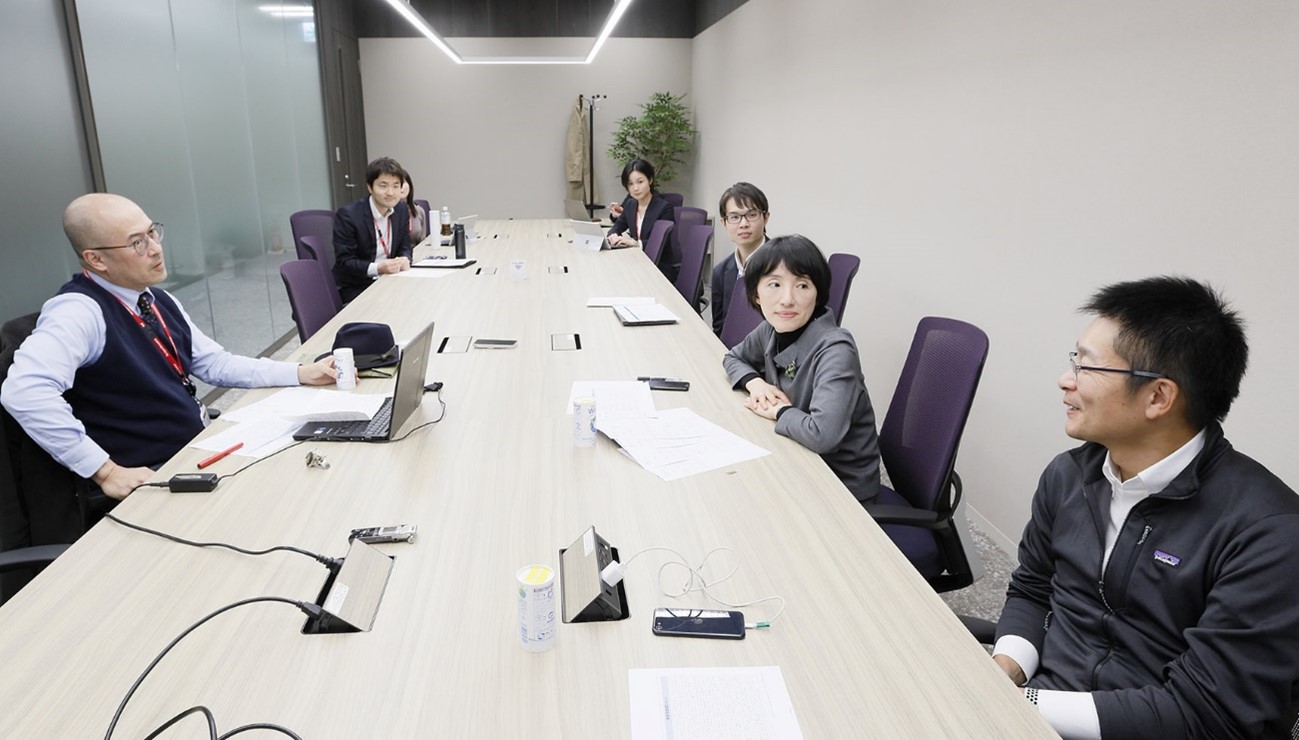
Scene of the selection committee.
Yamada (left), Takao (right), Murakami (second from right) and the GGP secretariat
The other four finalists also introduced their businesses, which provide new services with IT and other advanced technological capabilities.
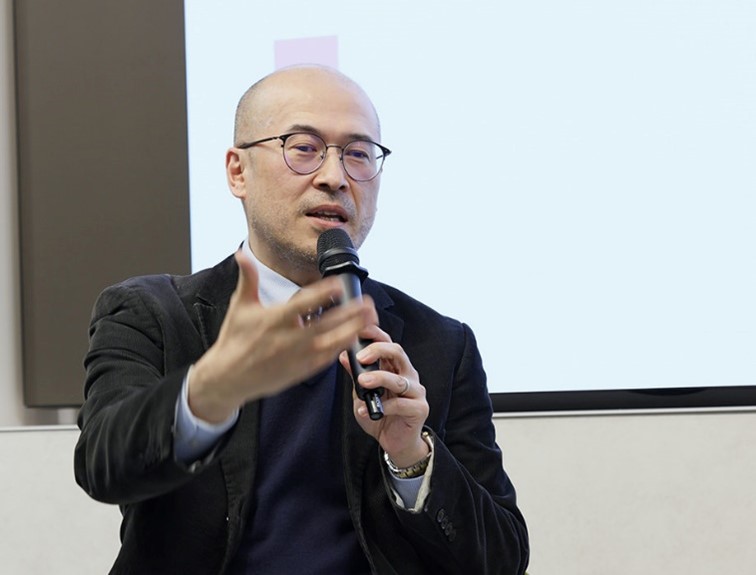
Yamada
Matchbox Technologies, which offers an application matching diverse work styles including short-term jobs for people with disabilities, is already in use at convenience stores.
Mr. Yamada commented, " I want to support this innovative approach to changing work styles using AI technology."
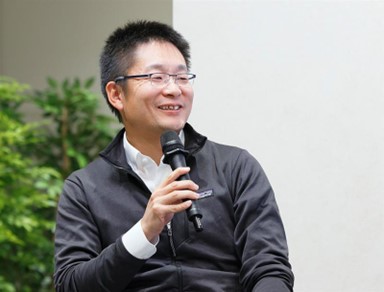
Takao
Takao, who himself is involved in the PET chemical recycling business using proprietary technology, praised Mimaki Engineering's "TRAPIS" , a transfer system for printing on apparel fabrics, as "an exciting technology." Unlike traditional printing methods, it doesn't produce polluted water and allows for reprinting and upcycling, addressing issues of mass production and waste.
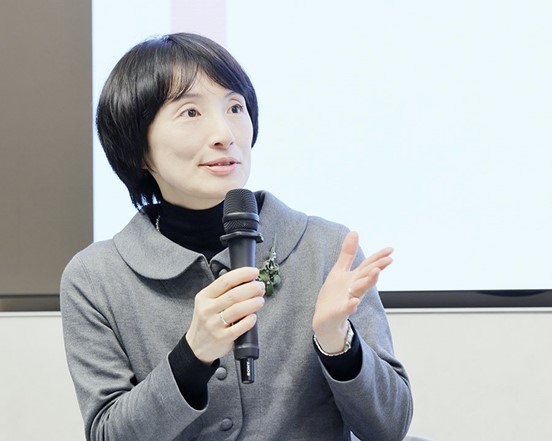
Murakami
Murakami, who studies children's rights and business, highlighted Studio Prairie’s "Prairie Cards" , a digital business card with an embedded IC chip.
"It's unconventional to use a card instead of transitioning from paper to smartphones. It's interesting that it's gaining popularity among middle school students, and I look forward to its development as a career passport," she noted.
The business model of Class, which rents furniture and appliances on a subscription basis to circulate durable goods, also garnered support. Mr. Yamada remarked, "They are likely to become a leader in the circular economy. I look forward to their business strategies for regional cities and global markets."
In the latter half of the selection meeting, Tesera (Mitani Sangyo Group), Foodison, and Sanwa Bussan, the companies that were supported in FY2023 by the Edge Program, introduced their businesses. This was followed by a panel discussion with Sanwa Bussan's CEO Makoto Nishikawa and mentor Tamako Watanabe from the Japan Research Institute, along with networking among participating companies.
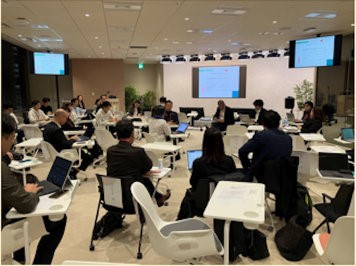
Networking among participating companies Photo: GGP Secretariat
Finally, Takao addressed the gathered companies, saying, "When trying to solve social issues, you inevitably face economic rationality. Overcoming this requires conviction and sharing it widely. This demands not just ideas but action. In a capitalist society, we must act and challenge together."
Yamada concluded, "I want to celebrate this Edge Program selection meeting, where many companies with exciting business plans participated. I hope the interactions here will become a breakthrough for Japanese companies and startups stuck in a stalemate."
(November 28, 2024, at the Social Value Co-Creation Studio, the Japan Research Institute)
Text: Mie Arioka/Studio SETO
Photos: Shinji Yamada/Scene Second
Translation: Waki Ominato/SMBC